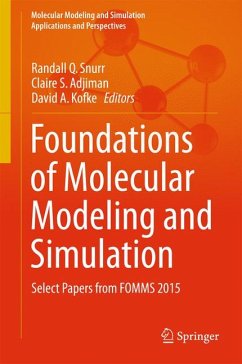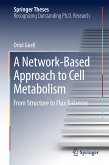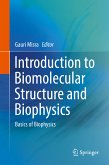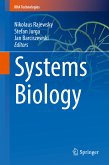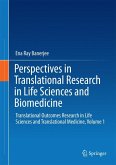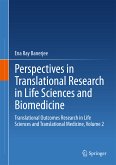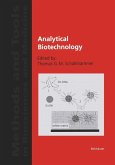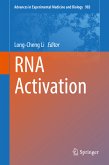Foundations of Molecular Modeling and Simulation (eBook, PDF)
Select Papers from FOMMS 2015
Redaktion: Snurr, Randall Q; Kofke, David A.; Adjiman, Claire S.
73,95 €
73,95 €
inkl. MwSt.
Sofort per Download lieferbar

37 °P sammeln
73,95 €
Als Download kaufen

73,95 €
inkl. MwSt.
Sofort per Download lieferbar

37 °P sammeln
Jetzt verschenken
Alle Infos zum eBook verschenken
73,95 €
inkl. MwSt.
Sofort per Download lieferbar
Alle Infos zum eBook verschenken

37 °P sammeln
Foundations of Molecular Modeling and Simulation (eBook, PDF)
Select Papers from FOMMS 2015
Redaktion: Snurr, Randall Q; Kofke, David A.; Adjiman, Claire S.
- Format: PDF
- Merkliste
- Auf die Merkliste
- Bewerten Bewerten
- Teilen
- Produkt teilen
- Produkterinnerung
- Produkterinnerung

Bitte loggen Sie sich zunächst in Ihr Kundenkonto ein oder registrieren Sie sich bei
bücher.de, um das eBook-Abo tolino select nutzen zu können.
Hier können Sie sich einloggen
Hier können Sie sich einloggen
Sie sind bereits eingeloggt. Klicken Sie auf 2. tolino select Abo, um fortzufahren.

Bitte loggen Sie sich zunächst in Ihr Kundenkonto ein oder registrieren Sie sich bei bücher.de, um das eBook-Abo tolino select nutzen zu können.
This book is a collection of select proceedings of the FOMMS 2015 conference. FOMMS 2015 is the sixth triennial FOMMS conference showcasing applications of theory of computational quantum chemistry, molecular science, and engineering simulation. The theme of the 2015 meeting focuses on Molecular Modeling and the Materials Genome.
- Geräte: PC
- ohne Kopierschutz
- eBook Hilfe
- Größe: 6.41MB
Andere Kunden interessierten sich auch für
![A Network-Based Approach to Cell Metabolism (eBook, PDF) A Network-Based Approach to Cell Metabolism (eBook, PDF)]() Oriol GüellA Network-Based Approach to Cell Metabolism (eBook, PDF)73,95 €
Oriol GüellA Network-Based Approach to Cell Metabolism (eBook, PDF)73,95 €![Introduction to Biomolecular Structure and Biophysics (eBook, PDF) Introduction to Biomolecular Structure and Biophysics (eBook, PDF)]() Introduction to Biomolecular Structure and Biophysics (eBook, PDF)113,95 €
Introduction to Biomolecular Structure and Biophysics (eBook, PDF)113,95 €![Systems Biology (eBook, PDF) Systems Biology (eBook, PDF)]() Systems Biology (eBook, PDF)121,95 €
Systems Biology (eBook, PDF)121,95 €![Perspectives in Translational Research in Life Sciences and Biomedicine (eBook, PDF) Perspectives in Translational Research in Life Sciences and Biomedicine (eBook, PDF)]() Ena Ray BanerjeePerspectives in Translational Research in Life Sciences and Biomedicine (eBook, PDF)113,95 €
Ena Ray BanerjeePerspectives in Translational Research in Life Sciences and Biomedicine (eBook, PDF)113,95 €![Perspectives in Translational Research in Life Sciences and Biomedicine (eBook, PDF) Perspectives in Translational Research in Life Sciences and Biomedicine (eBook, PDF)]() Ena Ray BanerjeePerspectives in Translational Research in Life Sciences and Biomedicine (eBook, PDF)73,95 €
Ena Ray BanerjeePerspectives in Translational Research in Life Sciences and Biomedicine (eBook, PDF)73,95 €- -29%11
![Analytical Biotechnology (eBook, PDF) Analytical Biotechnology (eBook, PDF)]() Analytical Biotechnology (eBook, PDF)113,95 €
Analytical Biotechnology (eBook, PDF)113,95 € ![RNA Activation (eBook, PDF) RNA Activation (eBook, PDF)]() RNA Activation (eBook, PDF)121,95 €
RNA Activation (eBook, PDF)121,95 €-
-
- -41%11
This book is a collection of select proceedings of the FOMMS 2015 conference. FOMMS 2015 is the sixth triennial FOMMS conference showcasing applications of theory of computational quantum chemistry, molecular science, and engineering simulation. The theme of the 2015 meeting focuses on Molecular Modeling and the Materials Genome.
Dieser Download kann aus rechtlichen Gründen nur mit Rechnungsadresse in A, B, BG, CY, CZ, D, DK, EW, E, FIN, F, GR, HR, H, IRL, I, LT, L, LR, M, NL, PL, P, R, S, SLO, SK ausgeliefert werden.
Produktdetails
- Produktdetails
- Verlag: Springer Nature Singapore
- Seitenzahl: 168
- Erscheinungstermin: 1. Juni 2016
- Englisch
- ISBN-13: 9789811011283
- Artikelnr.: 46928306
- Verlag: Springer Nature Singapore
- Seitenzahl: 168
- Erscheinungstermin: 1. Juni 2016
- Englisch
- ISBN-13: 9789811011283
- Artikelnr.: 46928306
- Herstellerkennzeichnung Die Herstellerinformationen sind derzeit nicht verfügbar.
Randall Q. Snurr is the John G. Searle Professor of Chemical and Biological Engineering at Northwestern University. He holds BSE and PhD degrees in chemical engineering from the University of Pennsylvania and the University of California, Berkeley, respectively, and performed post-doctoral research at the University of Leipzig supported by a fellowship from the Alexander von Humboldt Foundation. Other honors include the Institute Award for Excellence in Industrial Gases Technology from the American Institute of Chemical Engineers, the Leibniz professorship at the University of Leipzig, and a CAREER award from the National Science Foundation. He was named a Highly Cited Researcher for the period 2002-2012 by Thomson Reuters. He was a Senior Editor of the Journal of Physical Chemistry and currently serves on the editorial boards of several journals. His research interests include development of new nanoporous materials for energy and environmental applications, molecular simulation, adsorption separations, diffusion in nanoporous materials, and catalysis. Claire S. Adjiman is Professor of Chemical Engineering at Imperial College London. She holds an MEng from Imperial College and a PhD from Princeton University, both in Chemical Engineering. Her research interests lie in the area of integrated process and molecular/materials design, including the development of design methods, property prediction techniques and optimisation algorithms. She is the recipient of several prizes including a RAEng-ICI Fellowship (1998-2003), the Philip Leverhulme Prize for Engineering (2009), the SCI Armstrong Lecture (2011). She holds an EPSRC Leadership Fellowship (2012-2017) and was elected Fellow of the IChemE in 2013. In 2011, she co-edited a book on Molecular Systems Engineering published by Wiley-VCH. David A. Kofke received his B.S. in chemical engineering from Carnegie Mellon University, and his Ph.D from the University of Pennsylvania, advised by Eduardo Glandt. Since 1989 he has been on the chemical engineering faculty of the University at Buffalo (SUNY), where he served as department chair for six years, and now holds the rank of SUNY Distinguished Professor. Author of over 130 refereed publications, Kofke's research currently focuses on rigorous molecular-based free-energy calculations for crystal-structure prediction, and calculation of virial coefficients and other cluster integrals from molecular models. Among other awards, Kofke is the recipient of the triennial John M. Prausnitz Award for applied chemical thermodynamics, the Jacob F. Schoellkopf Medal, and the Himmelblau Award from the CAST division of AIChE. Prof. Kofke is a member since 1999 of the Board of Trustees of CACHE, where he served as President in 2010-2012. He is a Fellow of AIChE and AAAS.
A Discontinuous-Potential Model for Protein-Protein Interactions.- Probing How Defects in Self-Assembled Monolayers Affect Peptide Adsorption with Molecular Simulation.- Development of a Coarse-Grained Water Forcefield Via Multistate Iterative Boltzmann Inversion.- Optimizing Molecular Models through Force Field Parameterization via the Efficient Combination of Modular Program Packages.- A Hierarchical, Component Based Approach to Screening Properties of Soft Matter.- Quantum Virial Coefficients via Path Integral Monte Carlo with Semi-Classical Beads.- Homogeneous Nucleation of [Dmim+][Cl-] from its Supercooled Liquid Phase: A Molecular Simulation Study.- Influence of the Precursor Composition and Reaction Conditions on Raney-Nickel Catalytic System.- Atomistic Modeling and Simulation at Solving Gas-Extraction Problems.- Atomistic Simulations of CO2 During "Trapdoor" Adsorption Onto Na-Rho Zeolite.
A Discontinuous-Potential Model for Protein-Protein Interactions.- Probing How Defects in Self-Assembled Monolayers Affect Peptide Adsorption with Molecular Simulation.- Development of a Coarse-Grained Water Forcefield Via Multistate Iterative Boltzmann Inversion.- Optimizing Molecular Models through Force Field Parameterization via the Efficient Combination of Modular Program Packages.- A Hierarchical, Component Based Approach to Screening Properties of Soft Matter.- Quantum Virial Coefficients via Path Integral Monte Carlo with Semi-Classical Beads.- Homogeneous Nucleation of [Dmim+][Cl-] from its Supercooled Liquid Phase: A Molecular Simulation Study.- Influence of the Precursor Composition and Reaction Conditions on Raney-Nickel Catalytic System.- Atomistic Modeling and Simulation at Solving Gas-Extraction Problems.- Atomistic Simulations of CO2 During "Trapdoor" Adsorption Onto Na-Rho Zeolite.
